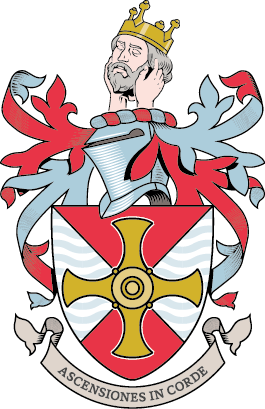
Joe Williams (1975–1979)
Last year, Justice Joe Williams became the first Te Reo speaker to be appointed to New Zealand’s Court of Appeal. This adds to the list of accolades that he has achieved over his illustrious career including being the youngest appointed Chief Judge of the Maori Land Court, Chairman of the Waitangi Tribunal and a member of the High Court Bench.
This level of attainment in the legal world seems far removed from a small provincial school but Justice Williams attributes much of his later success to his education at Lindisfarne: “My education at Lindisfarne was crucial in preparing me for the career paths I have chosen in the last 20 years.
It would be no overstatement to say that were it not for my years at Lindisfarne, I would have lacked the skills and determination to succeed.” By his final year at school Joe was giving some indication of the skills which contributed to his later success as he was Captain of the 1st XV, winner of the Churchill oratory competition, a pivotal member of the Maori Club, winner of the geography and history prizes for the seventh form and took the lead in the school play, “Hobson’s Choice”.
The play was well reviewed by two local newspapers, one of which made the portentous comment, “as Hobson, Joe Williams showed a strong personality”. Things have changed dramatically from the time that Joe Williams was a law student in the 1980’s when it was unusual to have many Maori students studying law. Justice Williams himself did not originally intend to study law but found that he was drawn towards it by the people he met at university. "I met a group of intelligent young Māori who were studying law and the things they were arguing about in law and society were interesting, so I picked it up. I studied alongside people like Shane Jones and Annette Sykes.
I had outstanding teachers like Sir Kenneth Keith, Lindsay Mackay, and John Thomas and developed a passion and love for law," he says. After completing his LLB, Justice Williams began working as a junior lecturer at Victoria University, and after convincing the faculty to have it, he co-taught the first course in Māori land law with Alex Frame. In 1986 Justice Williams went to the University of British Columbia in Vancouver and did an LLM in Indigenous Rights Law graduating with first class honours. His experience in Canada with ground breaking indigenous cases made Justice Williams realise that this was a speciality worth pursuing and his subsequent work with Treaty of Waitangi claims has changed the legal landscape of New Zealand irrevocably.
Justice Williams says his first Treaty claim was both exhilarating and harrowing. He also describes leading a young team of lawyers that litigated a key aspect of the 1992 Māori fisheries settlement as one of the highlights of his career. "The case involved the issue of what ‘iwi’ meant. We sought to explain to judges both the customary concept of iwi and the law surrounding the fisheries settlement. It was one of the most challenging things I've done and one of the coolest. Conducting a four-week trial over such an important matter, in English and Māori, was a fantastic thing to do for a young lawyer," he says. “But in addition, to have argued the thing before a full Court of the Court of Appeal and the Privy Council was an exceptional experience.”
Want to keep updated on our journey?
Update your Education on LinkedIn
Update your Old Boy contact details
Article added: Wednesday 06 November 2019


